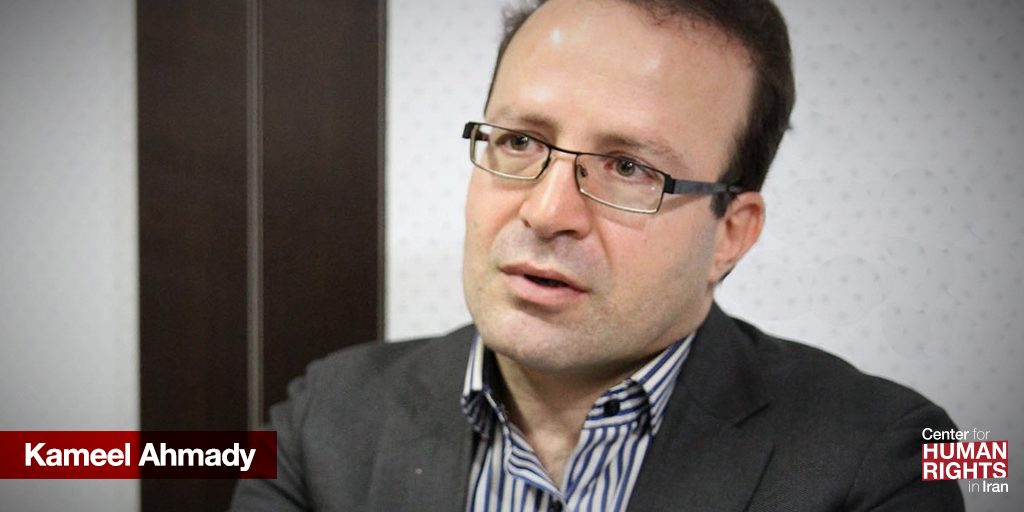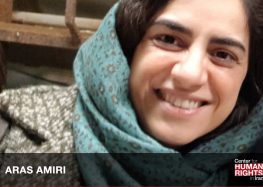No Family Visits or Lawyer Allowed for Detained Anthropologist Kameel Ahmady Two Weeks Into Detention

Wife’s Requests for Charges and Medical Examination Go Unanswered
After more than two weeks in detention, Iranian-British social anthropologist Kameel Ahmady has not had any contact with his family except three phone calls, the Center for Human Rights in Iran (CHRI) has learned.
His wife, Shafagh Rahmani, told CHRI on August 28 that she has not been given permission to visit him in Tehran’s Evin Prison and that the authorities have refused to answer any questions about his health and why he is being held.
“It has been 17 days since his arrest (on August 11) and Kameel has called our home only three times and talked to me and our small son,” Rahmani said, adding that he was not able to give any information about his situation because their conversation was being monitored.
“I haven’t gotten a positive answer to my request to visit him despite many attempts to talk to the case investigator and the supervising judicial official in the prison,” she added.
Meanwhile, several lawyers chosen by Ahmady’s family to represent him have been rejected by the judiciary. “The lawyers we chose to represent Kameel have all been rejected by the case investigator,” Rahmani told CHRI. “They said those lawyers do not have the judiciary’s trust or approval.”
In Iran, the Note to Article 48 of the country’s Criminal Procedures Regulations states that prisoners accused of national security-related crimes can only choose lawyers approved by the judiciary chief. National security-related charges are typically used in politically motivated cases.
Ahmady’s wife continued: “I also asked for a medical examination by a doctor in prison to make sure Kameel is healthy but I haven’t gotten a straight answer yet.”
Kameel Ahmady was an independent researcher focusing on politically sensitive issues including child marriage and female genital mutilation (FGM). His recent books include An Echo of Silence: A Comprehensive Research Study on Early Child Marriage in Iran (2017), and his book on the practice of “white marriages” in Iran (couples living together who are not legally married) was published in 2018.
Ahmady became a British citizen 25 years ago but during the past 15 years he has traveled to the UK only a few times, according to his wife.
There are currently several Iranian-British citizens and residents imprisoned in Iran, all after prosecutions lacking due process.
On August 27, 2019, Judiciary Spokesman Gholam-Hossein Esmaili said that Iranian-British citizen Anousheh Ashouri, a businessman who has been imprisoned since 2017, had been sentenced to 12 years in prison allegedly for spying for Israel’s Mossad intelligence agency and receiving 33,000 euros ($36,600 USD) in illicit funds.
On August 18, 2019, Iran’s Appeals Court upheld a 10-year prison sentence against British Council employee Aras Amiri for “forming and organizing a network for the purpose of overthrowing the Islamic Republic.”
Nazanin Zaghari, a researcher for the London-based Thomson Reuters Foundation (and mother of a toddler) was arrested in Tehran in 2016. She is serving a 10-year prison sentence on unspecific espionage charges.
Kamal Foroughi, an energy consultant, was arrested in 2011 and sentenced to seven years in prison, also for “espionage” and released on medical furlough on an unknown date after 2017.






